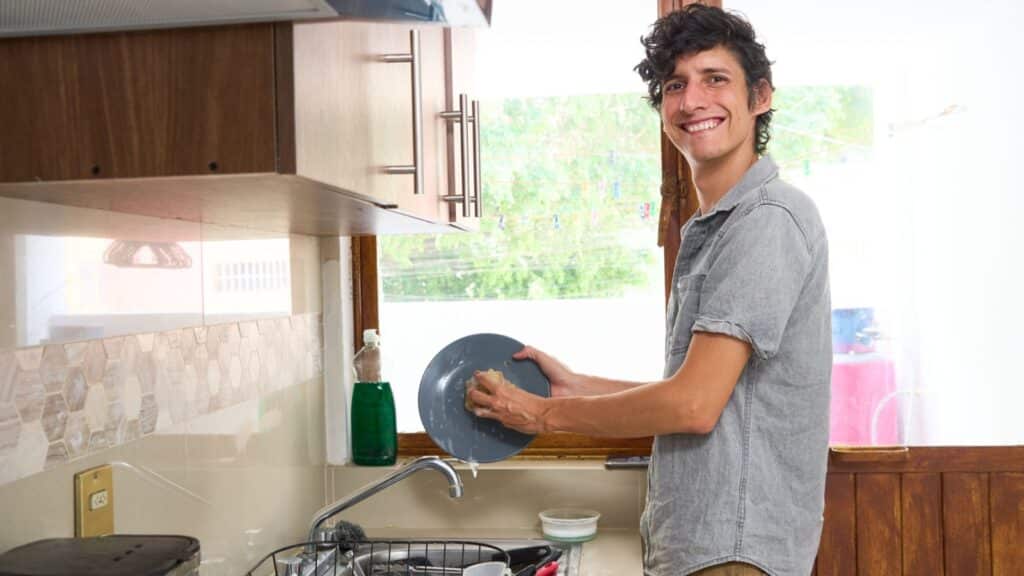You’ve probably seen people talking about the “stay-at-home sons” trend on social media. But it’s so much more than that. Young men in real life are choosing not to leave their family homes and don’t have a regular job outside the house, although that doesn’t necessarily mean that they’re being lazy. What are they doing? And why? Let’s find out.
What the label usually means

There’s no official report referring to stay-at-home sons, and it’s more of an internet nickname that has spread. Usually, it describes a man who continues to live with his parents and isn’t working full-time for now. He might help them with cleaning and cooking, perhaps running errands, or looking after older relatives.
In China, the version of this is called “full-time children.” Parents sometimes pay their adult kids a small salary for helping the household. It’s not exactly unemployment, nor freeloading.
Essentially, it’s the male version of the “stay-at-home girlfriend” trend. You’ll see videos on social media of sons driving their moms to appointments and organizing the pantry. They might even joke about being the man of the house.
How the label jumped into the mainstream in 2025
The idea of a stay-at-home son isn’t exactly new. However, it became very popular after a candidate on the game show Jeopardy!, named Brendan Liaw, referred to himself as a stay-at-home son. He explained that he lived with his parents and didn’t have a job.
While it wasn’t meant as a huge confession, people online ran with it, and clips went viral within a few days. There are also other versions of the label, including “hub-sons,” and “trad-sons,” even “modern house sons.” They all mean roughly the same thing.
How common living at home is for men

Statistics show that more men are living with their parents than any generation before them. In 1980, around 11% of men aged 25–34 lived at home. This figure jumped to around 21% in 2020, pandemic aside.
But don’t assume that guys simply don’t want to be independent. One of the major reasons why they’re doing this is because the timing of adulthood milestones has changed. People are getting married later, and college debt is heavier. Let’s not forget that rent prices are sky-high.
As a result, men, more than women, are hanging onto their childhood bedrooms a little longer. Guys in their late twenties and early thirties are more likely than women to still be under their parents’ roof.
Why adult sons do this
Researchers who’ve followed these trends have said that the biggest cause of this trend includes job changes and changes in relationships. When a man’s life gets shaky, the family home is the easiest safety net for him.
The number of guys moving back home spikes even higher when there’s a recession. Men are struggling to stand fully on their own two feet in their twenties. So they’d rather not do it.
What changes inside the home

When a son moves back, it affects how the household runs. Moms tend to keep closer day-to-day contact with their sons, while fathers aren’t usually as involved. Various studies have found that daughters usually check in more often with their parents.
Families that have been through divorce or separation work differently, too. The amount of contact between fathers and sons tends to decline, especially when compared to mothers and daughters. Of course, none of this is a value judgment. It’s simply what the data shows.
What recent timing looks like
The recent trend of guys staying at home picked up right as major life trends started changing. Government data from 2025 shows that Americans are marrying later than ever. As a result, people, especially men, spend more years in that in-between phase of adulthood.
The COVID-19 pandemic also changed the way that people saw living with family. It’s far more normalized, and some guys never left their family home. Others came back for a short while, then stayed longer than planned.
Creators turning the label into a product
But not everyone saw it as a mere joke. Some people decided to cash in, including Abdullah Abbasi, a Gen Z creator from Chicago. He turned “stay-at-home son” into a clothing brand that sells hoodies and tees with the name printed across the front.
Beyond the clothes, Abbasi also sells the stay-at-home lifestyle. He regularly posts photos on social media of expensive cars and private jets, along with hashtags like “#richlife” and “#wealth.” Clearly, the trend is more than a simple meme.

